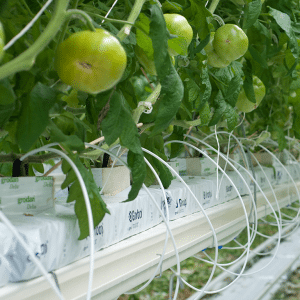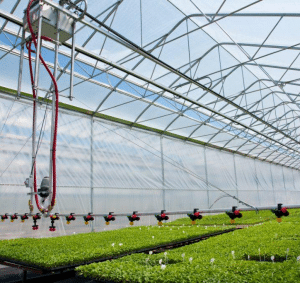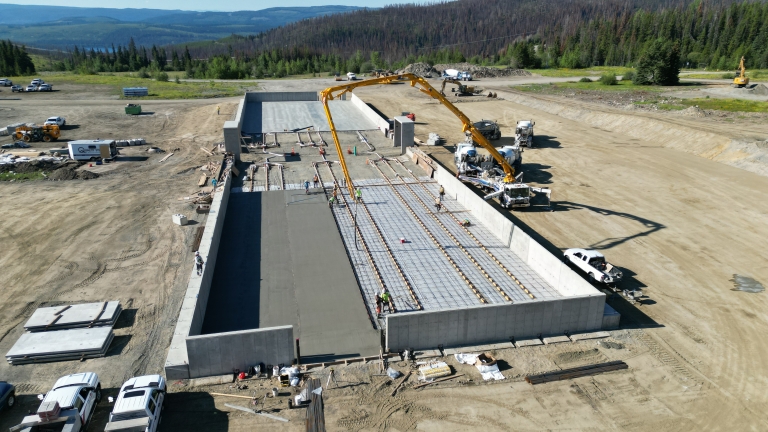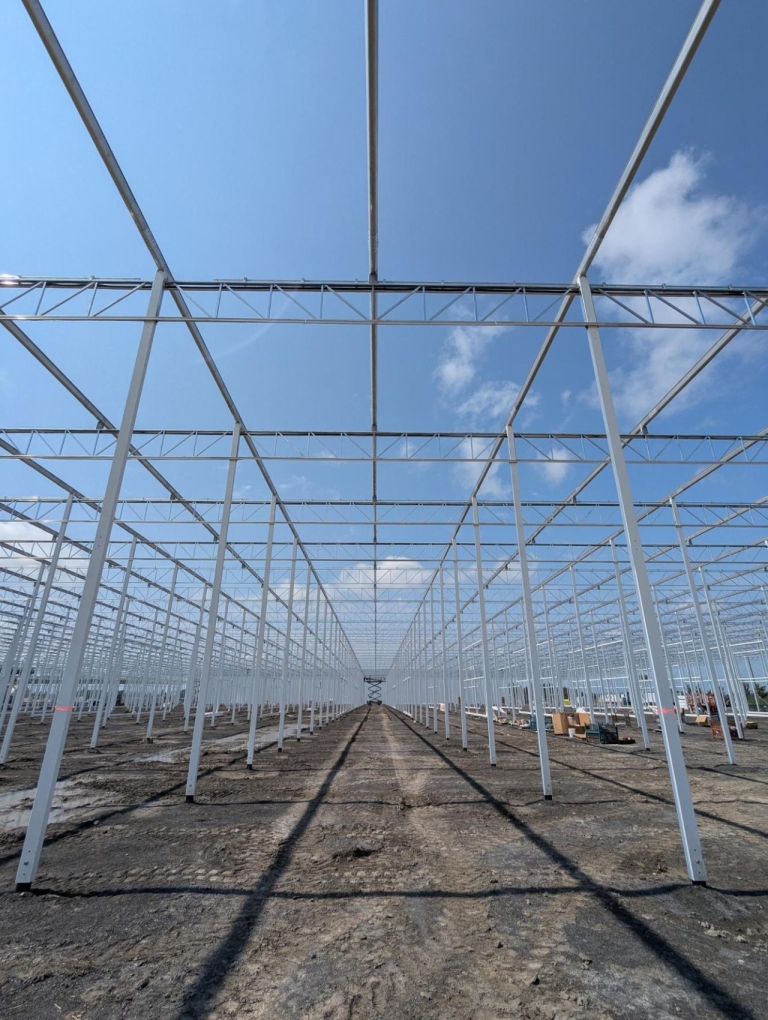Organic production offers producers complete control over their crops. The greenhouse provides an environment that is conducive to organic production management and provides a structure that facilitates traceability.
The growing organic demand
In Canada, there has been a significant and steady increase in the sale of organic products and beverages. According to a study available on the Agri-Réseau website (in French only), sales increased from $2 billion in 2008 to $3 billion in 2012. Canadian consumers can’t get enough of organic products, with more than 58% purchasing them every week. That’s why more and more producers are starting to produce organic crops or transition from traditional crops to greenhouse organic crops. In both cases, Agrisys experts are here to bring your project to life
Protection against diseases in organic crops
Greenhouses give producers the chance to create their own growing environment and therefore manage every aspect of production. Greenhouses also protect crops from a host of pests and diseases, extreme weather conditions and outdoor pollution such as pesticide drift.
Organic production techniques
 Water treatment systems
Water treatment systems
Organic production is designed to respect the environment. First and foremost, it relies on organic waste and natural minerals to provide adequate nutrition to crops. Effective and efficient systems can be installed easily in a greenhouse, which facilitates the supply of nutrients and water recycling all while allowing for improved irrigation management. A great example is Vialux UV disinfection, one of our water treatment systems successfully established at Serres Royales. The system consists of small pipes installed near the roots of the plants, providing adequate water to ensure perfectly adapted and localized irrigation. Any water that isn’t absorbed by the plant is removed by a gutter system and treated for reuse, and all water management is computer automated. The greenhouse also provides sheltered areas for all equipment needed to recycle nutrients and water.
Protection against external elements
Organic producers can’t use traditional chemical pesticides, which can be a challenge when producing field crops. Greenhouse production provides greater protection against external elements like pollution, diseases and pests, allowing the producer to use little to no pesticides.
 Above-ground greenhouse crops
Above-ground greenhouse crops
In Canada, producers can choose between above-ground or soil crops. Some soils are not rich enough to comply with, or are incompatible with, organic regulations, making above-ground production inevitable. Greenhouses make it easy to adapt to such situations, allowing producers to grow healthy and productive crops while respecting organic production standards.
Greenhouse equipment
Greenhouses ensure greater productivity of plants and the possibility to produce all year round. The waterproof structure allows for the installation of a CO2 enrichment system that improves crop quality and productivity. Booster lighting and a heating system can also be installed to boost annual production.
Organic farming requires compliance with a strict framework of procedures, standards and accreditations. Greenhouses are a great solution for organic producers, giving them complete control over climate, irrigation, organic fertilization and equipment management. Greenhouses offer producers control over biosecurity, organic farming techniques and equipment for a more stable, high quality production.
Source: https://www.mapaq.gouv.qc.ca/SiteCollectionDocuments/Regions/LavalLanaudiere/Journeesagricoles2016/13h30StevePepin_Partie1.pdf


